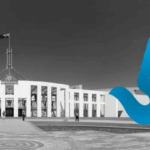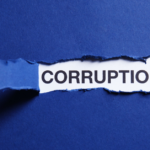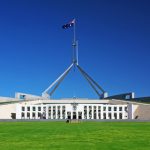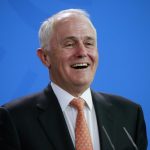Dreyfus Convenes a Human Rights Act Inquiry: ‘It’s Time… Has Come’, Says Liberties Advocate
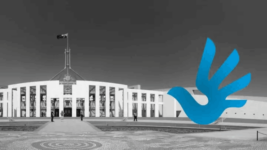
Australia desperately needs federal human rights protections, which is an understanding that’s been growing in the community over recent years. However, the Liberal Nationals are clearly opposed to such a move, whilst successive Labor administrations have merely flirted with the idea.
But, according to Civil Liberties Australia CEO Bill Rowlings, PM Anthony Albanese has been hinting at the prospect of a Human Rights Act (HRA) since securing the top office, and, as attorney general Mark Dreyfus has just established a human rights inquiry, such reform is likely on the cards.
Dreyfus announced the Parliamentary Joint Committee on Human Rights Inquiry into Australia’s Human Rights Framework on 22 March, which is a review that should have taken place ten years ago and will consider whether to enact a HRA at the federal level.
Right now, Australia continues to be the only liberal democracy on the planet that hasn’t enshrined rights protections in federal law. And while many in the community are unaware of this, Amnesty International found that when told, 73 percent of Australians support introducing rights guarantees.
Civil Liberties Australia (CLA) has been meeting with various parties over the last three and a half years, as it was campaigning to put a HRA on the agenda of an elected Labor government.
And the inquiry comes on the back of the recent release of the Australian Human Rights Commission’s position paper on a federal HRA.
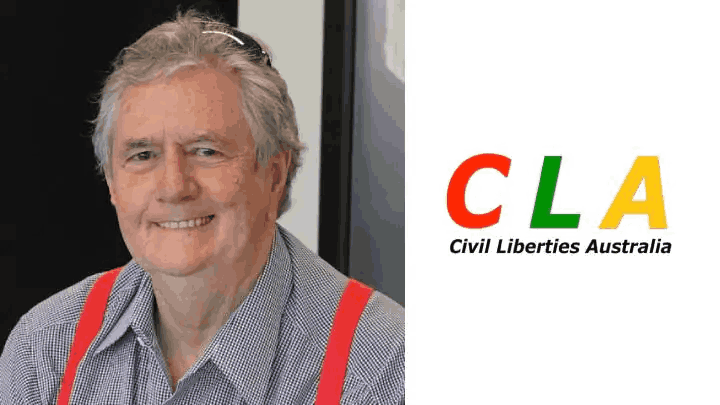
Prospective protections
“The prospect of a federal Human Rights Act is a one-off chance to make Australia a better place to live for all of us,” said Rowlings. “Under a federal HRA, our rights will be written into the law of the land.”
“A federal HR Act empowers the little people of Australia by giving them more say in how they’re treated, particularly when government does them wrong,” the liberties advocate told Sydney Criminal Lawyers.
Despite regular assertions being made about the rights protections within the Australian Constitution, this rather reflects the situation in the US, where a bill of rights was enshrined in its constitution in 1791.
In contrast, our nation’s founding document directly guarantees just five rights and implies the protection of one other.
The inquiry will review the 2010 Australian Human Rights Framework, which consists of education programs, the parliamentary human rights committee, and the requirement that all federal bills be accompanied by a rights statement of compatibility, as well as whether to enact a HRA.
“The federal HRA that CLA proposes will ensure all citizens’ rights are properly and positively considered before decisions are made,” explained Rowlings. “If a decision or a program unwittingly penalises people, there’ll be a quick, easy and cheap way to correct the mistake.”
Between the branches
Released on 7 March, the AHRC’s position paper on a federal HRA recommends the government considers enacting a dialogue model, which provides formal exchange between the three branches of government – the executive, the legislature and the judiciary – all working to uphold rights.
Rowlings explains that the dialogue model ensures that parliament, the legislature, will always have “the first and last say”, so those critics who posit that a federal HRA would provide the judiciary with too much power should have these fears allayed.
“If any clause or condition in the HRA becomes contentious, a court can’t just change the interpretation without giving parliament the chance to consider the area, and to decide whether the Act should be amended in the way parliament wants,” he continued.
The impact of the rights protections “will be subtle at first”. But it will result in a “positive duty” requiring departments and public servants to consider rights in decision-making, whilst making it easier for the public to seek recourse when it’s considered a bad decision has infringed upon rights.
“CLA believes the Robodebt scandal, which cost people’s lives by suicide, as well as costing billions of dollars in compensation over about an eight-year timeframe, would have been nipped in the bud if there had been a federal HRA in place when it started,” stressed the rights advocate.
Ripe for reform
Federal rights protections were first considered during the 1890s constitutional conventions, with a view to enshrining them in the Constitution. And various Labor governments, minor parties and independents, in particular Andrew Wilkie of late, have raised the issue periodically.
The Labor Rudd government established the Brennan inquiry into national human rights in 2008, and it strongly recommended the establishment of a federal HRA. But in 2010, then PM Kevin Rudd decided against the option and instead implemented the Australian Human Rights Framework.
Nations comparable to Australia, such as the US, the UK, Canada and New Zealand, have all adopted national rights protections, while the Australian Capital Territory, Victoria and Queensland have established rights protections within their jurisdictions.
Rather than a repeat of the actions of the Rudd era, Rowlings considers the current ALP government “has seen the light” in regard to a HRA, and he underscores that during the current decade there has been a “groundswell” of public opinion in favour of the proposal, due to two developments.
The first was the onset of the COVID-19 pandemic, which revealed to Australians how their “daily liberties and rights could be instantly removed”. And the public, having “suddenly suffered the over-the-top restrictions”, then found it had no easy way to challenge them.
The other key shift that’s made the ground more fertile for the passing of federal rights protections is that social media has led young Australians to become more aware of the guarantees citizens of other nations enjoy and how these laws improve to their lives.
“The mood of Australia is different now. It’s much more receptive than it was fifteen years ago. The public climate has changed quite considerably, as has the political climate,” Rowlings said in conclusion.
“It is actually remarkable how many vociferous opponents of a federal HRA fifteen years back have changed their minds and support one now in the 2020s.”


